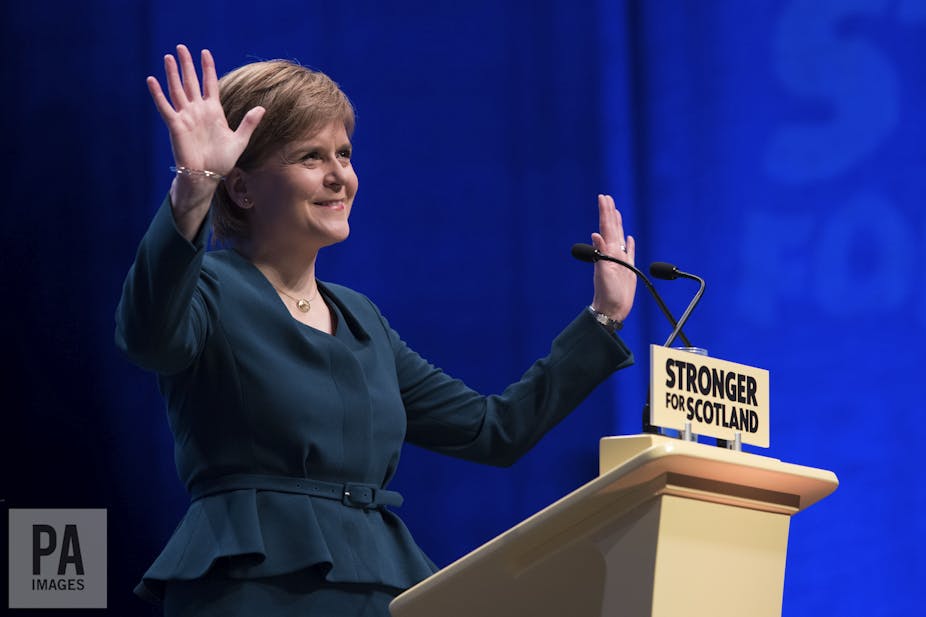Scottish First Minister Nicola Sturgeon’s announcement of a draft bill to make a second independence referendum viable unsurprisingly delighted the audience at the SNP conference in Glasgow. But what should the rest of us make of it? My gut tells me Scotland is heading for a vote on independence again, but I wouldn’t yet bet my house on it – the decision remains wrapped up in several unresolved issues.
Above all, the SNP don’t want to hold a second referendum until they think they can win. Support for independence is currently not far from 2014 levels, despite Brexit. It sounds simple to hold back a referendum until enough people tell you they’ll vote yes, but who can say if that’s likely? Many Scots don’t know what their choice will be in a referendum until they can make sense of recent events.
So Brexit might be a game changer in a year or two, but it isn’t right now – according to the latest poll, even a so-called hard Brexit in which the UK leaves the European single market would not be enough to give the yes side a decisive lead. Sturgeon may yet have to choose to pursue a referendum in circumstances she would clearly prefer to avoid: before the polls change in her favour.
Unclear Brexit
The lack of clarity in the polls is probably because it is too soon to know what Brexit will look like. The idea of Brexit is still too abstract and not yet related to the arguments that might win the day for a yes vote. If you don’t really know what something is, how it relates to your life, and who you should blame for that outcome, how can you express a view on its effect on your political preferences?
The SNP will likely base their case for a second referendum on a combination of simple statements about Brexit: England is pulling Scotland out of the EU against our will; the Tories caused this problem; we want to clear up the mess they caused; it’s rich for them to warn us about disastrous economic risks around independence; and we want to be a cosmopolitan Scotland, not the rump of little England.
The risk is that Scottish voters might see the Brexit vote as a cautionary tale. It is not easy to argue that the best response to the catastrophic effects of a withdrawal from a major political, economic and social union should be to withdraw from another major political, economic and social union.

This is particularly true now that Brexit has opened up the possibility of more devolution, which had previously been more or less closed off. A feasible alternative to independence is to push for more autonomy in the areas that are devolved and currently “Europeanised” – including agriculture, fishing and environmental policies.
The UK could grant that and perhaps convincingly argue that the Scots were “equals on a range of areas”. When the former Scottish health secretary, Alex Neil, talks about “neo-independence”, this is the sort of thing he has in mind.
Advantage Sturgeon?
So I’d describe Sturgeon’s announcement as a short-term win: why not give your most active audience something to cheer about while you wait for events to unfold? But predicting the timing of a referendum is no easier than before. It will be the point at which (a) we know enough about the meaning of Brexit to judge its likely impact, but (b) there is still time to respond within the timetable of the UK’s exit from the EU.
Some people are worrying that the UK government might scupper the SNP’s chances directly, by withholding consent for a second referendum. Maybe it would be better to be tricksy indirectly, being vague about the impact of Brexit and having people in Scotland worry about making a choice before they know its effect.

